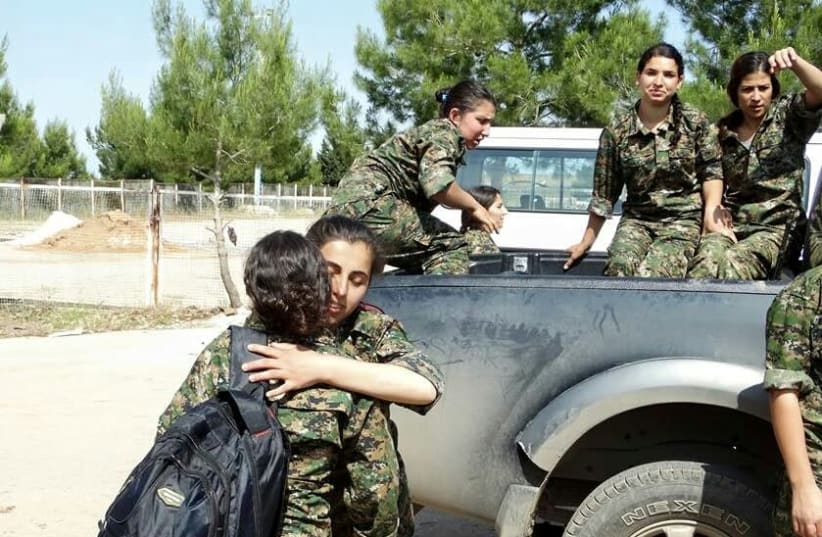Her father, musician Dirk Campbell, was given the diary of his daughter when he went to Syria.Anna Campbell was an activist in several groups, including the Anarchist Black Cross, and joined the international section of the Kurdish Women’s Protection Units [YPJ] and fought for the defense of Rojava, a mostly Kurdish autonomous zone in northern Syria. She was killed near Afrin by a Turkish missile. She was the first British woman to die in the conflict.The Kurdish army in the area fought against ISIS, the regime of Syrian President Bashar Assad, Turkey, and other Syrian rebel groups.“Anna was very idealistic, very serious, very wholehearted and wanted to create a better world,” her father said at the time according to The Guardian. According to the recently found diary, she was given the chance to stay and teach at the International Academy but opted to take part in the fighting.The father of the British woman killed in Syria fighting alongside Kurdish forces pays tribute to his "idealistic" and "determined" daughter. Dirk Campbell says 26-year-old Anna understood she was putting her life at risk. #r4today pic.twitter.com/t8CbqNBwgr
— BBC Radio 4 Today (@BBCr4today) March 19, 2018
— Brûsk (@Brusk2b) March 20, 2018Rojava, which is the first attempt to create a free society based on anarchistic and communal principles since the fall of revolutionary Catalonia in 1938 during the Spanish Civil War, had gained some attention among scholars and Western anarchists who joined the fighting.Autonomous since 2012, Rojava is inspired by PKK leader Abdullah Ocalan who was influenced by the works of Jewish-American anarchist and ecologist Murray Bookchin, which he read while in Turkish prison.One of the principles of Rojava is that women enjoy full equality and are well represented in all administrative units. The other is that while the PKK party aspires for Kurdish liberation, the region includes and welcomes not only Kurds but anyone who wants to live in a free society.
